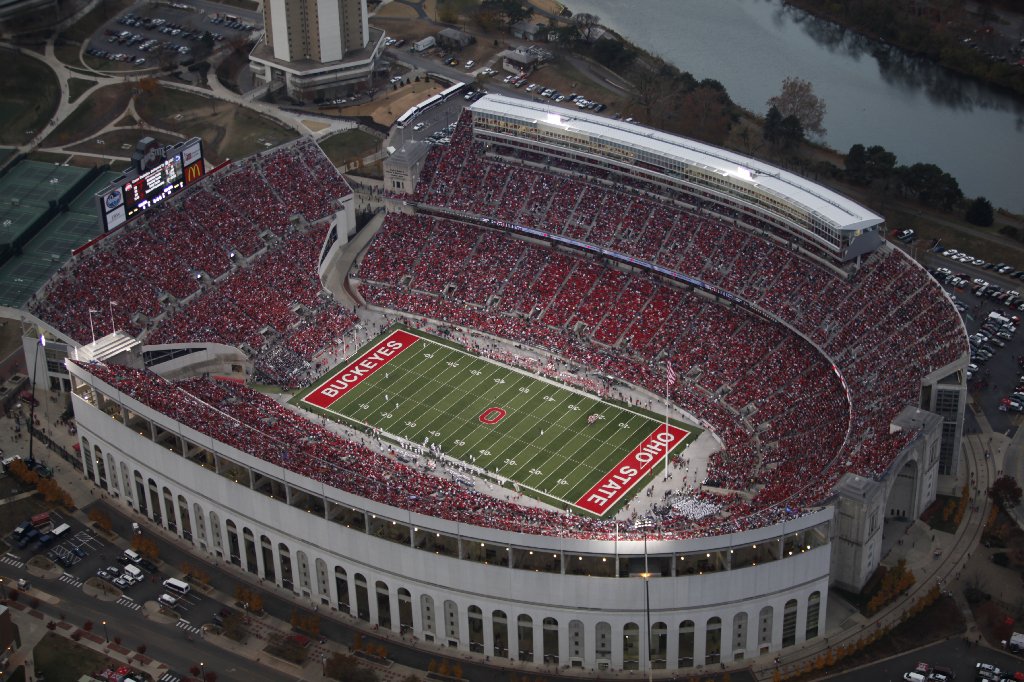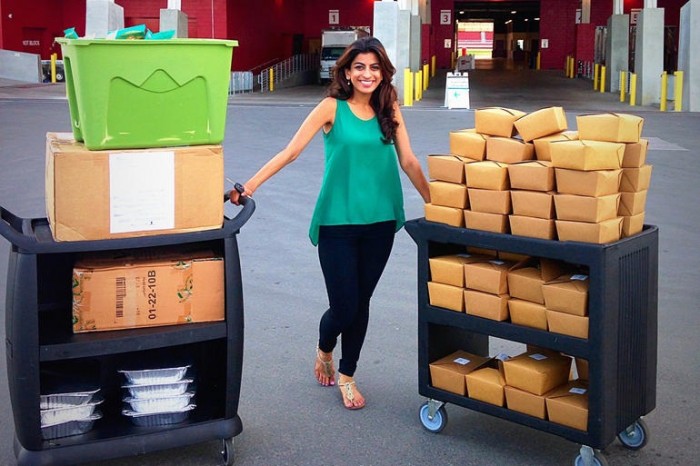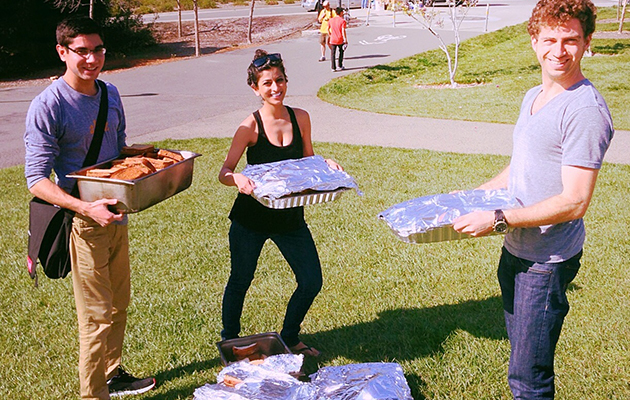Meet The 25-Year-Old Woman Who Is Helping Thousands Of Homeless People Get Food
An on-demand smartphone app to serve the greater good.
This is how much food goes wasted every single day in America
Excess food is a serious issue in the US. After paper, food scraps are the nation's second largest source of waste, according to the US Environmental Protection Agency.
Leftovers fill 18 percent of landfills and make up over 30 million tons of what is sent to dumps each year. When cut off from oxygen, the organic matter creates methane gas and contributes to global warming.
At the same time, the EPA says that roughly 50 million people in the US don't have access to enough food. That's more than 15 percent of the population -- or nearly one in six people.
Yet about 40% of the food that grows in the US never gets eaten
"We have a lot of people in the US who don't know where their next meal is coming from. That's a travesty. We have such an abundance, and people are in a state of scarcity," said JoAnne Berkenkamp, a senior advocate in the Food and Agriculture Program at the nonprofit Natural Resources Defense Council.
So what's being done to solve this issue of food being wasted when there are millions of hungry and homeless people out there?
Enter Komal Ahmad, CEO of Feeding Forward, a non-profit service that seeks to end America's hunger problem by using an on-demand app designed to eliminate the food distribution problem.
Feeding Forward CEO Komal Ahmad shows off surplus food collected from the Bite Silicon Valley food-tech conference in early June. Leftovers gathered at this event fed more than 4,279 people at eight different shelters and food banks.
Image via CNET/Komal Ahmad/Feeding ForwardFeeding Forward established a web-based network of food banks and homeless shelters to streamline the process of distributing food quickly before it goes bad.
If a shelter needs food, for example, they fill out a form to request that food be delivered as soon as possible; if there is a surplus of food anywhere, they can also fill out a form to have that food redistributed elsewhere.
At any given time, Feeding Forward knows who needs food and where to take it, and their small army of 88 employees goes to work.
 nextshark.com
nextshark.com
So far Feeding Forward has fed more than 570,000 people
Since Feeding Forward launched in 2013, the service, which so far serves only the San Francisco Bay Area, has recovered more than 684,000 pounds of food. That means it's fed more than 570,000 people and diverted more than 3.42 million pounds of carbon dioxide emissions from landfills.
cnet.comAnd all it took just one lunch to change Komal Ahmad's life
It was 2011. She had just come back from Navy medical training and was attending the University of California at Berkeley to start work on her undergraduate degree.
While she was walking near campus one fall day, a homeless man approached her, asking for money to buy food because he was hungry. Instead of giving him cash, Ahmad invited the man to lunch. As they ate, he told her his story. He was a soldier recently returned from Iraq and had a bad turn of luck.
"He'd already gone on two deployments and now he's come back, he's 26 and on the side of the road begging for food," Ahmad said. "It just blew my mind."
It bothered her so much that she decided to do something about it. Within a few months, Ahmad set up a program at UC Berkeley that allowed the school's dining halls to donate excess food to local homeless shelters. That program then expanded to 140 college campuses across the US in about three years.
Through a website and mobile app, Feeding Forward matches businesses that have surplus food with nearby homeless shelters
Here's how it works: when companies or event planners have surplus food, they tap the Feeding Forward app and provide details of their donation. A driver is dispatched to quickly pick up the leftovers and deliver them to food banks.
cnet.comWhile the amount of food being recovered with Feeding Forward isn't much compared with what's being tossed, as CNET notes, it's starting to make a dent in food waste and in feeding people in need
Thousands of people have reached out to the company after it was featured in a CNET story Sunday, begging for the service to be expanded around the globe, Ahmad said.
"I didn't expect it to blow up," she said. "People as far as Nairobi, Bangalore and Hong Kong have wrote us asking us to expand Feeding Forward to their cities and countries. They're like, 'Tell me what I can do to get it here.'"
Moving ahead, Ahmad said she hopes to expand Feeding Forward to cities outside the Bay Area, including Seattle and Boston.
"These are huge cities that have absurd amounts of food thrown away every day," Ahmad said. "We are trying to make the Bay Area a case study to say 'Hey, if it works here, it can work anywhere.'"


